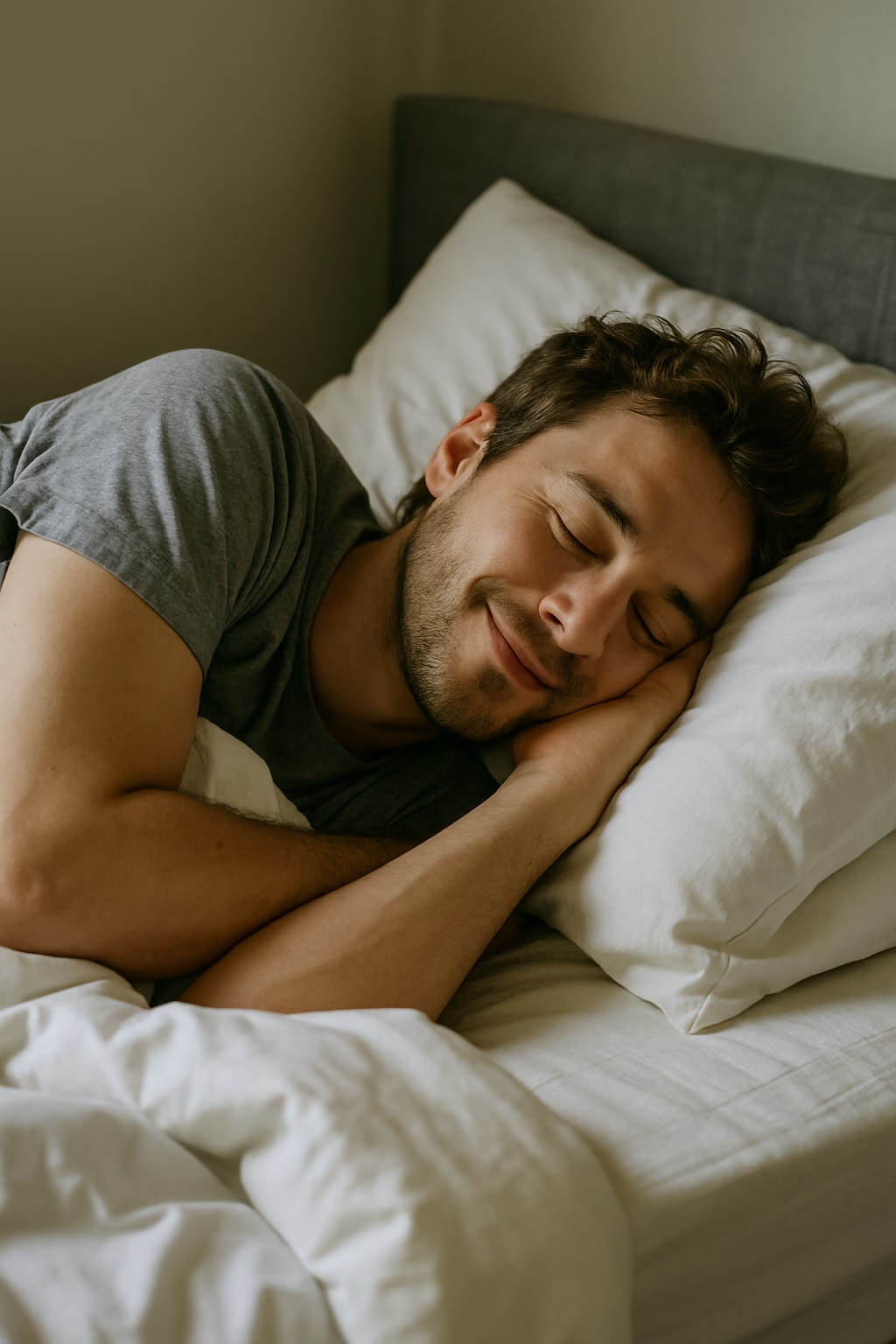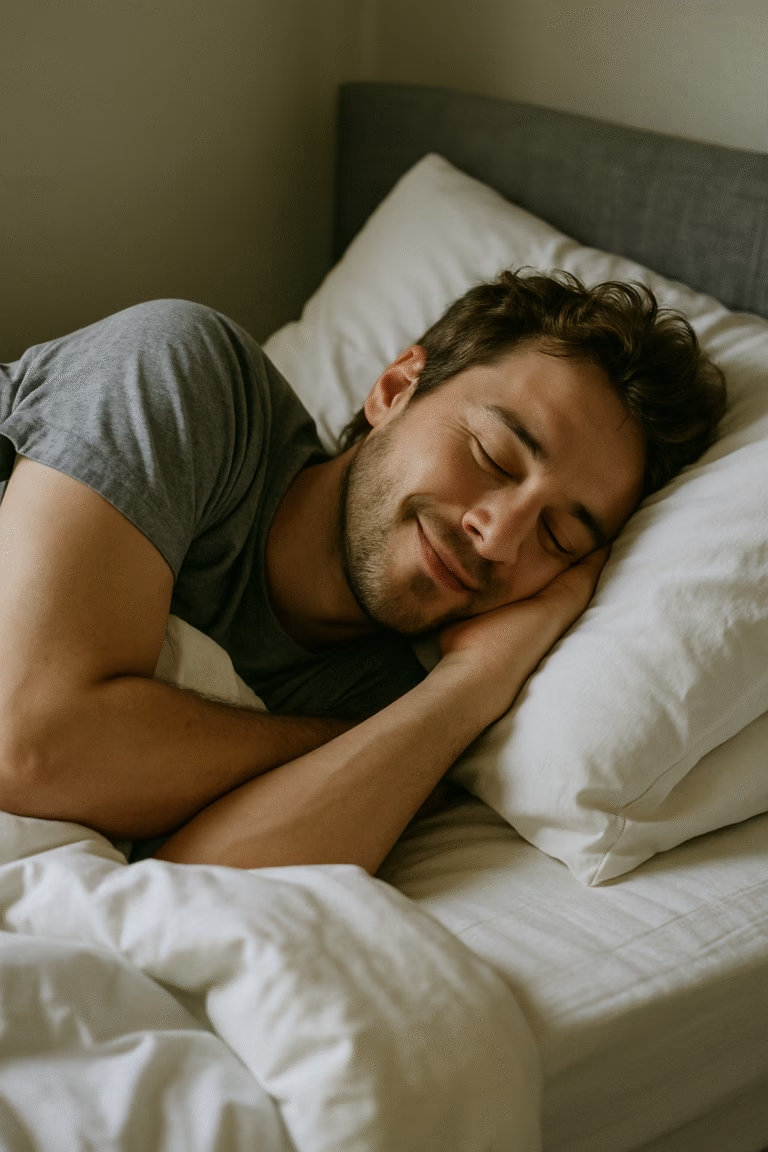
Did you know that more than one-third of adults don’t get enough sleep daily, according to the Centres for Disease Control and Prevention? In modern society, sleep is often treated as a minor concern as people prioritize their work and entertainment. Emerging studies suggest that sleep deprivation not only affects our day-to-day life and productivity but also increases the chance of getting cancer. Not getting enough sleep can make our immune system weak, which can increase the chances of getting cancer.
This article discusses the connection between sleep and cancer, and different ways to improve your sleep for better health.
The science of sleep and body repair
Sleep is a cycle of two distinct phases: Non-Rapid Eye Movement (Non-REM) sleep and Rapid Eye Movement (REM) Sleep. Each phase has its own functional role in our body and keeps alternating through the night.
Non-Rapid Eye Movement (Non-REM) sleep:
Non-REM sleep makes up most of our sleep, and it is where the actual body repair happens. When our body enters sleep, it slowly shuts down and decreases brain activity. It conserves energy by reducing the heart rate and breathing. And the body creates the right conditions for repair by lowering the body temperature and triggers the repair by the release of chemicals.
Rapid Eye Movement (REM) Sleep:
This phase happens throughout the night and is essential for our brain health. During REM sleep, our brain activity increases, and the eyes move rapidly under the eyelids, leading to dreaming. Most of the dreaming takes place during this phase, and our body remains in a state of paralysis to prevent it from acting out the dreams. The main purpose of this phase is to process emotions and memories and help with memory consolidation.
Poor sleep and cancer risk factors
Poor sleeping patterns can not only cause cancer, but also various other diseases, like
- Heart diseases like high blood pressure, stroke
- Diabetes
- Neurodegenerative disorders
- Obesity
Sleep deprivation imbalances normal body functions and reduces our immunity, which increases the chance of getting cancer. Lack of sleep might cause:
1. Hormone imbalance :
- Hormones are a vital part of our body, and they shouldn’t be too high or too low to be able to perform the normal body functions.
- Some sex hormones, like estrogen and testosterone, play a major role in cancer. Even though it itself doesn’t cause cancer, it can make the cancer cells grow, especially in the case of breast, ovarian, uterine, and prostate cancers.
- The melatonin hormone is an antioxidant produced during sleep, which helps to regulate cell growth. Poor sleep can reduce the amount of melatonin production, causing abnormal cell growth, leading to cancer.
- Cortisol hormone helps our body to withstand stress, but in the case of poor sleeping patterns, the cortisol production becomes lower, making it difficult for our body to fight off diseases like cancer.
2. Reduced brain function:
Inadequate sleep can also lead to reduced brain function. Thereby, causing memory loss, weakened immune response, increased inflammation, and hormone imbalance, which can act as a cancer-developing environment.
3. Slow body repair:
Most of the body’s repair mechanisms, including cells, tissue, and DNA repair, happen while sleeping; hence, insufficient sleep can slow down these processes.
- The slow repair of damaged DNA can lead to accumulation in the cells and even cause mutations, which may lead to cancer.
- The slow repair can also cause the abnormal cells to survive instead of the healthy cells, leading to complications.
Ways to improve sleep
Even small changes in your lifestyle can greatly influence your sleeping patterns. Let’s look into some of the best ways to improve sleep:
- Maintain a consistent sleep schedule – try to follow the schedule even during the weekends so that it can become a part of your daily routine.
- Control your caffeine intake – caffeine can block the chemicals from the brain that induce sleep.
- Create a sleep-friendly environment – try to keep your room dark and cozy.
- Limit screen time before bed – Avoid using mobile phones and laptops before bedtime.
- Include more physical activity in your daily routine.
- Manage stress – practice yoga or meditation to reduce stress and anxiety, which can help you sleep well.
- Seek professional help if needed: if it can’t be controlled by lifestyle changes, consult a professional.
- Control the intake of alcohol before bed.
- Avoid heavy meals near bedtime.
- Stay hydrated, but not just before bed.
- Avoid long naps during the day.
Conclusion
Sleep is not just a time for rest; it is a crucial period for repairing, regulating, and maintaining our bodies. Therefore, quality sleep is essential to keeping our body and mind healthy. Prioritizing sleep can be one of the easiest options for health maintenance. After all, a good night’s sleep makes the foundation for a good day.
Frequently asked questions
How much sleep does an adult need daily?
Most adults require 7 to 9 hours of sleep daily to support overall health and well-being.
When should I see a doctor about sleep issues?
If you constantly struggle to fall asleep and feel fatigued after adequate sleep, it is better to consult a professional for advice.
Is it possible to catch up on sleep during weekends?
Not fully, while weekend naps can reduce short-term tiredness and fatigue, they cannot reverse the negative effects caused by chronic deprivation of sleep.
Does working at night shift cause more damage to the body than normal, poor sleeping habits?
Yes, long-term night shift work disrupts the normal cardiac rhythm and decreases the production of melatonin hormones, which can be the major cause of cancer.
How does light exposure at night interfere with sleep and cancer risk?
Exposure to artificial lights like mobile phone light can suppress the production of the melatonin hormone, which has a crucial role in cell and tissue repair, leading to increased cancer risk.
How does stress-induced poor sleep differ from lifestyle-induced poor sleep?
Stress-induced poor sleep often increases cortisol production, reduces immunity, and causes inflammation, whereas lifestyle-induced poor sleep often disrupts cardiac rhythm and melatonin production.
Discover more from The Vigyan Chronicles
Subscribe to get the latest posts sent to your email.



